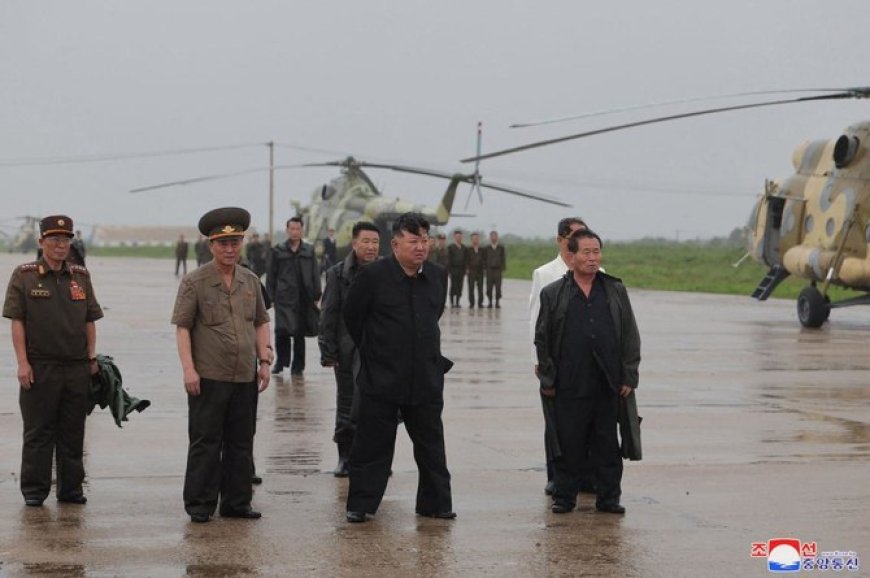Kim Jong Un Oversees Evacuation Efforts as North Korea Battles Severe Flooding
In response to severe flooding that has impacted northwest North Korea, more than 5,000 residents have been rescued through a coordinated evacuation effort led by North Korean leader Kim Jong Un, according to state media reports.

In response to severe flooding that has impacted northwest North Korea, more than 5,000 residents have been rescued through a coordinated evacuation effort led by North Korean leader Kim Jong Un, according to state media reports.
Heavy rainfall on Saturday caused a river along the North Korean-Chinese border to overflow, creating what the official Korean Central News Agency (KCNA) described as a "grave crisis." The flooding isolated numerous residents in Sinuiju city and Uiju town, prompting a large-scale rescue operation. Approximately 10 military helicopters, along with navy and government boats, were mobilized to facilitate the evacuation.
KCNA reported that despite challenging weather conditions, each helicopter conducted multiple flights, ultimately airlifting 4,200 people to safety. In addition to airlifts, boats were used to rescue the remaining individuals, bringing the total number of those saved to over 5,000. Kim Jong Un personally supervised the evacuation efforts on Sunday, directing the provision of food and essential supplies to those affected.
Lack of Damage Assessment
As of the latest reports, KCNA has not disclosed any information regarding fatalities or the extent of damage caused by the flooding. Kim Jong Un's leadership was highlighted as "miraculous" due to the successful rescue operation. However, there has been no detailed assessment of the damage to infrastructure or farmlands, which are frequently impacted by summer floods due to poor drainage and deforestation.
Government Criticism and Response
During his visit to the flooded areas, Kim Jong Un criticized officials for their inadequate disaster prevention efforts, attributing the delay in response to a "defeatist" attitude. He expressed dissatisfaction with the emergency response agencies and the Ministry of Public Security, noting that they lacked accurate population data for the affected areas, which resulted in a larger-than-expected number of rescues.
Kim’s remarks are seen as part of a broader effort to project himself as a proactive leader concerned with his people's welfare amidst ongoing economic hardships and international isolation. Observers suggest that his criticism of officials might also serve to deflect attention from systemic issues in disaster preparedness and management.
Context of North Korea’s Flooding Challenges
North Korea regularly faces significant challenges from summer floods, exacerbated by inadequate drainage systems, deforestation, and aging infrastructure. Previous severe weather events, such as the 2020 typhoons and torrential rains, have led to substantial damage and contributed to the country's ongoing crises, which are compounded by strict pandemic measures and international sanctions related to its nuclear program.
The current situation underscores the persistent vulnerabilities faced by North Korea and the complex interplay of domestic leadership, natural disasters, and international pressures. Kim Jong Un’s role in overseeing the response to this crisis reflects his strategic emphasis on maintaining control and managing public perception amid the country’s broader difficulties.













































